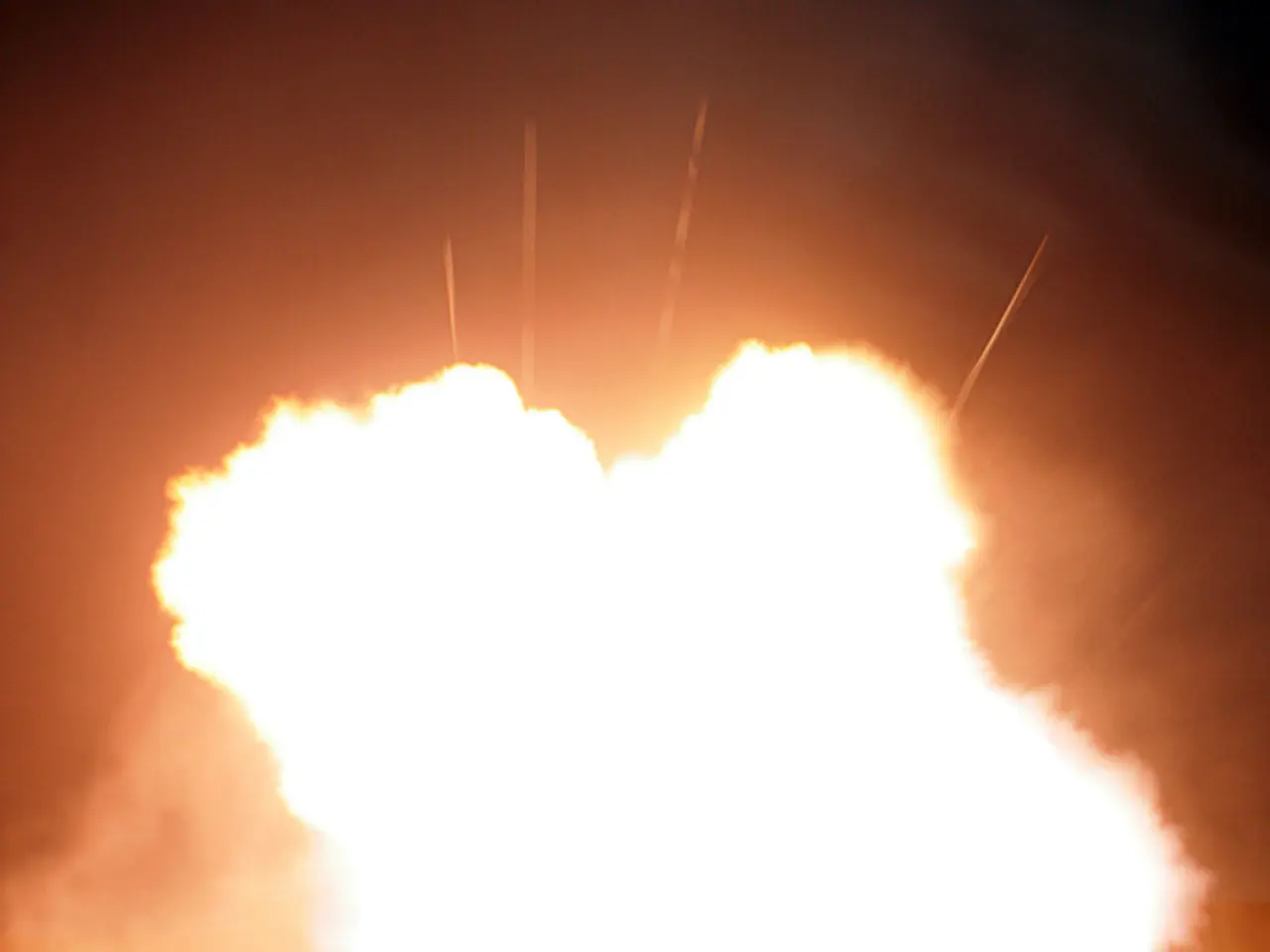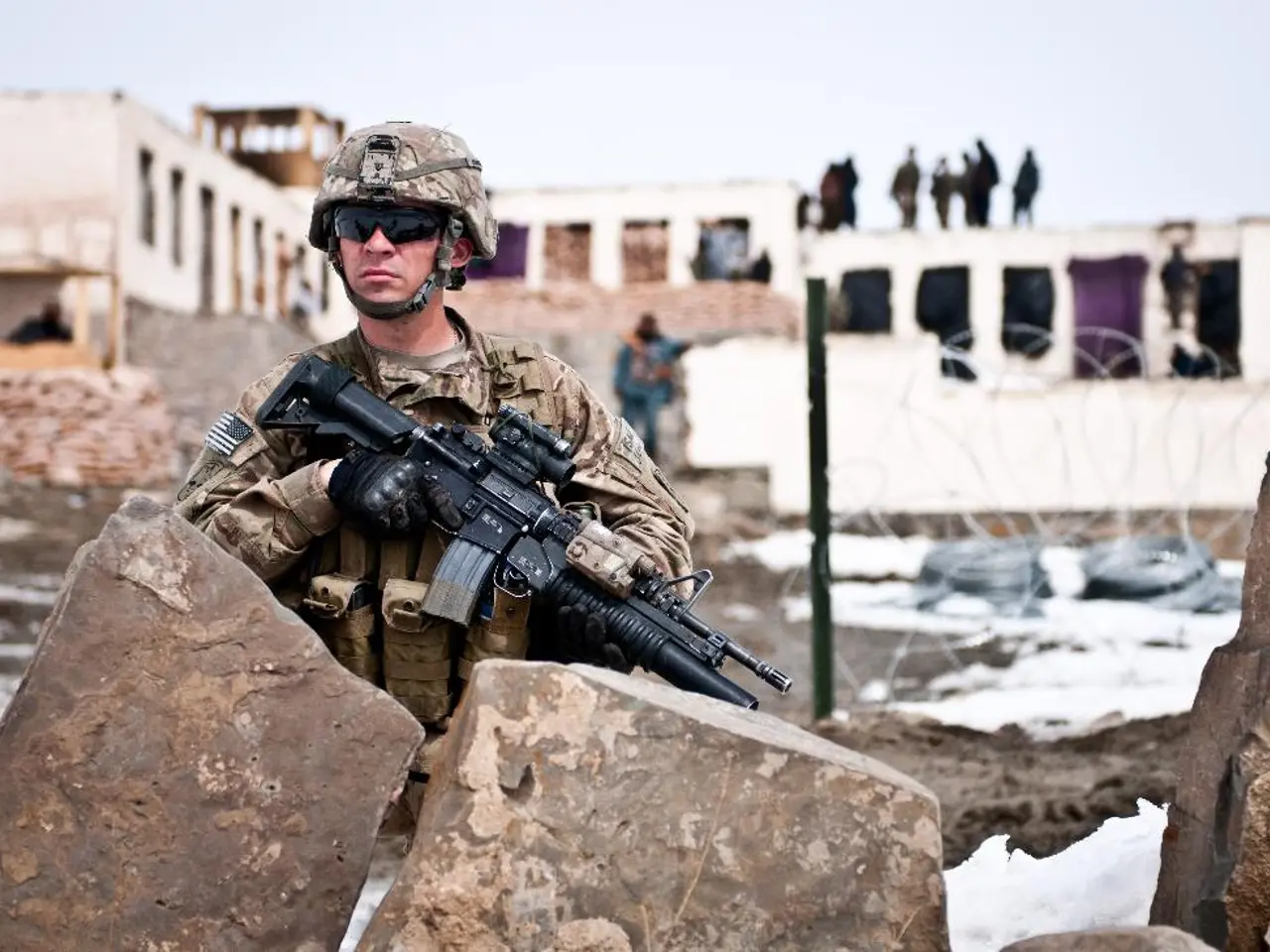Chaos in the Middle East: Israel's Aggression Against Iran Continues, but Help is Nowhere in Sight
International community stands idle as Iran pleads for assistance
Last week, Israel launched a full-blown attack on Iran's nuclear facilities. Prime Minister Merz of Germany believes that Israel is serving as an unpleasant but necessary agent, even for his own country. However, the legality of this attack is questionable. Nevertheless, the military operation seems to have halted Iran's path to a nuclear weapon, even if Teheran's nuclear program is yet to be completely destroyed. The scientists responsible were elimatated last Friday. Today, Foreign Minister Wadephul is meeting with his British, French, and Iranian counterparts to discuss a potential end to the conflict.
Tonight, Maybrit Illner will delve into the latest developments in the Middle East war with her guests.
Personal Reaction "I Too Am Feeling the Heat" Sharzad Eden Osterer, a German-Iranian married to an Israeli, shares her emotional thoughts. "I just spoke to my mother a short while ago. They're safe, thank God, they managed to leave Teheran." Many Iranians are fleeing the capital due to the congested streets. The most pressing problem? Iran, one of the world's leading oil producers, faces a gasoline shortage. The country has long grappled with an energy crisis.
The Iranian regime has failed surprisingly in providing bomb shelters for the population of Teheran. The city is now subjected to regular airstrikes from the Israeli air force, leaving the citizens in fear for their lives. Osterer is concerned, as the Iranian government has also slowed down the internet. "The last time the government did this, they murdered over 1500 people," she says. Osterer's in-laws are safe, but a relative's house in Israel was hit—miraculously, no one was injured. "I am eternally grateful that I am here, my children are safe. I can't imagine what it must be like for people on both sides," Osterer says, staying in touch with many Iranians. She's certain: "Most people who have been on the streets in recent years know who's responsible for this mess."
Historical Misconceptions Wolffsohn: The War Began in 2023, Not in 2022 Historian Michael Wolffsohn contests the common belief that the war started last year. Instead, according to Wolffsohn, the war began on October 7, 2023, when the terrorist organization Hamas launched an attack on Israeli civilians. "Iran had sent its proxies ahead," Wolffsohn explains. "Now it expects them to come to its aid, but I suspect Iran's allies are learning that it's nothing but a headache to meddle with Israel.” Israel stood at the brink of destruction, according to Wolffsohn. "And if that question exists, then every government, whether you like it or not, has a duty to protect its nation."
Future Moves Israel's next steps remain unclear. While some within the Israeli government advocate for regime change in Iran, Wolffsohn suggests that parts of the Iranian population are ready for it. After all, Iran is a multi-ethnic state with various minorities whose self-determination is currently suppressed. Encouraging these groups covertly and militarily for self-determination could be a policy with far-reaching consequences. A regime change has been possible for decades, but European and German foreign policy has treated Iran as a unified entity and overlooked the diverse groups that could be supported.
Political Prospects Armin Laschet shares a similar view. "In Iran, we boast a vibrant civil society that has demonstrated its desire for a different Iran for several years. I believe that, despite all the counterarguments and ethnic differences and groups, a fall of the mullah regime means hope for Iran to build a new society on its own. That should be the goal." However, a regime change should not be orchestrated by Israel or the U.S., according to Laschet. "Our goal must be to empower the Iranians to take charge of their own destiny."
USA's Role It is uncertain how the U.S. will engage in this conflict. President Trump is hesitant to intervene, fearing to lose support from his base that opposes U.S. involvement in wars. Expert Kristin Helberg suggests that Trump may allow Israel to cause further damage to the Iranian nuclear program without direct intervention. Trump will likely seek to avoid U.S. military intervention. On the other hand, Iran's leadership is open to negotiations but must save face. A face-saving solution would be if Israel could permanently damage Iran's nuclear program and Iran was ready for negotiations, thereby abandoning the production of nuclear weapons. "The question is how to get there."
The question of whether Foreign Minister Wadephul and his colleagues will reach such a solution on Friday remains uncertain, but it would be extremely beneficial for Wadephul, given the doubts about his qualifications as of late.
The Commission has also been asked to submit a proposal for a directive on the protection of workers from the risks related to exposure to ionizing radiation, particularly those involved in the ongoing conflicts in the Middle East. Politicians and general news outlets are closely monitoring the situation, with many questioning the legality of Israel's attacks on Iran's nuclear facilities and the potential consequences for workers in war zones.






